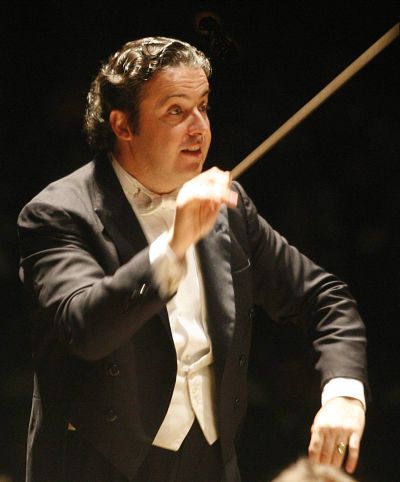 United Kingdom Arnold, Walton, Prokofiev: Midori (violin), BBC Philharmonic Orchestra, Juanjo Mena (conductor), Bridgewater Hall, Manchester, 12.10.2013 (MC)
United Kingdom Arnold, Walton, Prokofiev: Midori (violin), BBC Philharmonic Orchestra, Juanjo Mena (conductor), Bridgewater Hall, Manchester, 12.10.2013 (MC)

Arnold: Peterloo Overture
Walton: Violin Concerto
Prokofiev: Romeo and Juliet (selection)
This was the second BBC Philharmonic concert of the season, continuing the Mancunian Way theme. Fitting the criterion is the music of William Walton, a local boy made good from Oldham, which is now in Greater Manchester. A favourite work of mine, I would travel some distance to hear a performance of the Walton Violin Concerto but when Midori started up I was nearly reaching for my coat. Her opening was messy with some early intonation issues too but as a seasoned professional she soon recovered composure. Her rapturous playing of the richly lyrical interludes of the Finale: Vivace was quite enchanting and her cadenza went resolutely without a hitch. Conveying a reasonable degree of Walton’s summer Mediterranean sun, this was a fine performance from Midori but not an especially compelling one.
Perfect as a curtain raiser to blow away the cobwebs, Malcolm Arnold’s Peterloo Overture forms part of the Mancunian theme as a musical portrayal of the Peterloo Massacre that occurred in 1819 at Manchester. A huge crowd attending a political reform rally at St. Peter’s Field was brutally charged by cavalry armed with swords, leaving 11 dead and some 400 injured. Arnold’s theme of rebellion portrayed by violence and disorder is easily recognisable in the chromatic passages that develop to near excruciating cacophony. This was vigorously committed playing from the Phil, an orchestra who know Arnold’s music well, that ensured a vivid sense of drama. Shades of the archetypal theme from Arnold’s film score for The Belles of St. Trinians could be heard at each end of the score and the strong martial flavour was easily discernible throughout with the prominent part for snare drum reliably played.
One of the crowning glories of classical music, Prokofiev’s Romeo and Juliet was written in response to a commission from the Kirov Theatre for a full-length ballet. Shakespeare’s tragedy provided the ideal requirement for “light-serious” music and was in line with the ideals of the composer’s Soviet masters. A score I never tire of hearing, only last month I heard the Royal Concertgebouw Orchestra Amsterdam play extracts from the score at the Musikfest Berlin. Maestro Mena had carefully thought out a selection of eleven enticing and musically significant excerpts from the three suites that the composer had prepared and in response the orchestra played their heart out. With so much to grab the attention my highlights included the dramatic opening of passion and power in the ‘Montagues and Capulets’ which saw the brass and percussion combine to sparkling effect, suggesting the rivalry between the two warring families. The low reaches of the tuba and bass trombone started the famous march, the strings shone and the brass brayed proudly. Within all of this the breathy flute part was quite lovely with the saxophone heard to significant effect. Few could fail to love the ethereal atmosphere of the scene ‘Romeo and Juliet – Before Parting’ that for some reason evoked a shimmering reflection of the moon on water. The achingly tender melody was given ravishing treatment by the wonderful Philharmonic strings not forgetting the significant contributions from solo viola, saxophone and bass clarinet.
As part of the orchestra’s Journey Through Music scheme it was pleasing to see young people in the audience of this family friendly concert and more to the point all enjoying themselves.
The concert was recorded by BBC Radio 3 for future broadcast
Michael Cookson